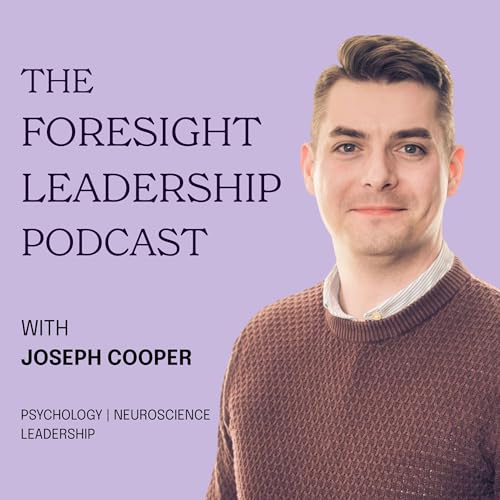How often do we categorise people to feel safe - and in doing so, lose sight of who they really are? In this episode, we explore the tension between frameworks and lived reality, personality and presence, labels and personal growth.
Leaders often rely on models (like the Big Five) to make sense of complexity. But what if those models reduce people to traits and overlook their dynamic systems? In this conversation, I reflect on my own early misreadings (such as with “Isabel”) and introduce the critiques of psychologist Jack Block - particularly his profoundly important point that the Big Five are descriptive summaries, not explanatory truths. We explore how personality is a living, self-organising system shaped by context, emotion, and development - and what that means for leadership.
We also turn to questions from early listeners, exploring the tensions leaders face: balancing expectations and internal life, leading authentically while remaining prudent, and knowing when a role or environment is no longer supporting their growth. Finally, I share a more vulnerable, personal story - how my childhood experience shaped a pattern of suppressing pain, and how that pattern showed up in my leadership.
This episode is for leaders who are tired of oversimplified models, who sense there’s more behind behaviour than labels, and who want to lead from a lens of depth and ongoing evolution.
What You’ll Learn:
- Why the Big Five model - while useful - can mislead if treated as the “whole truth”
- Jack Block’s critique: traits vs. dynamic processes, and what “personality coherence” really means
- How leadership is less about having the “right traits” and more about cultivating adaptive systems
- The polarity of stability + plasticity in personality and leadership
- The ethical dimension of conscientiousness vs. conscience
- What emerges when leaders stop suppressing inner signals and start honouring them
- Questions to reflect on: how you manage internal tension, what you’re carrying, and how your leadership system is evolving
Useful Resources:
- Block, J. (1995). A contrarian view of the five-factor approach to personality description. Psychological bulletin, 117(2), 187.
- Costa, P. T., & McCrae, R. R. (1995). Solid ground in the wetlands of personality: A reply to Block.
- Block, J. (2001). Millennial contrarianism: The five-factor approach to personality description 5 years later. Journal of Research in Personality, 35(1), 98-107.
- Block, J. (2010). The Five-Factor Framing of Personality and Beyond: Some Ruminations. Psychological Inquiry, 21(1), 2–25.
- Join The Foresight Leadership Podcast Facebook Group: (https://www.facebook.com/groups/theforesightleadershippodcast/)
- Book a call to work with Joseph: (https://bookings.foresightleadershipgroup.co.uk/#/coaching-services)
- Connect with Joseph on LinkedIn: (https://www.linkedin.com/in/josephwcooper91/)
Your Next Steps:
If this episode stirred something in you, don’t just listen - reflect. What’s your next question? What might be hidden beneath your “traits”? Share that in the Foresight Leadership community (or send me a message). And if you’re curious to go deeper, there’s an opportunity in the show notes to explore working together.
 2025/10/071 時間 22 分
2025/10/071 時間 22 分 3 分
3 分

